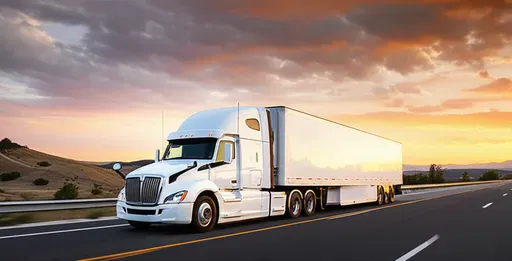Safest Vehicle Transport Options for Long Distances
Understand the tradeoffs between open, enclosed, and specialty trailers so your vehicle arrives protected on cross-country routes.

What is the safest vehicle transport option for long distances?
Enclosed transport delivers the highest protection for cross-country moves because the trailer shields your car from weather, road debris, and onlookers. For exotic, classic, or freshly restored vehicles, enclosed carriers with liftgate loading prevent undercarriage scrape and maintain climate stability. If your vehicle is a daily driver headed a long distance, a top-tier open carrier with air-ride suspension and modern tie-down systems can still be very safe—especially when the route avoids severe weather seasons.
Our team evaluates your vehicle type, route, and timing to recommend the safest configuration without overspending on services you don’t need.
How do I make an open carrier as safe as possible?
Choose carriers that use soft straps or wheel nets instead of chains, and confirm they perform a four-point tie-down on every vehicle. Ask about trailer model year and maintenance routines; late-model equipment with air-ride systems absorbs highway vibration better. Finally, request top-deck placement to reduce exposure to rock chips when feasible.
Safe Ship notes these safety upgrades on your itinerary and confirms them again with dispatch before the truck arrives.
What documentation should I expect from a safety-first carrier?
Reputable carriers perform a detailed bill of lading with time-stamped photos at pickup and delivery. They also share inspection records for their equipment and furnish proof of cargo and liability insurance. For long-distance moves, carriers may provide route plans with scheduled rest stops to ensure compliance with hours-of-service rules.
We archive all of this paperwork in your Safe Ship portal so you can reference it if questions arise during or after the trip.
When should I upgrade to a specialty trailer?
Low-clearance, oversized, or high-value vehicles gain extra protection from specialty equipment. Double-deck enclosed trailers with liftgates suit race cars and EVs with battery packs mounted close to the ground. Custom hydraulic trailers accommodate SUVs with roof racks or aftermarket lifts without risking contact with upper decks.
Tell your coordinator about any modifications. We’ll pair you with a carrier that owns the right trailer type and has a track record with similar builds.
Can timing affect long-distance transport safety?
Yes. Planning around peak storm seasons, wildfire risk, or regional construction minimizes delays and roadside hazards. Booking a few weeks ahead gives dispatch time to assign experienced drivers and avoid rushed departures. If you must travel during a risky period, consider enclosed service and build buffer days into your schedule.
We monitor weather and traffic advisories leading up to pickup and can reschedule or reroute proactively if conditions deteriorate.
Let’s tailor a safe route
Share your vehicle details and timeline, and we’ll outline the safest trailer options, driver profiles, and insurance coverage available for your lane.
Need extra reassurance? We can set up photo checkpoints and mid-route calls so you track the journey from start to finish.
